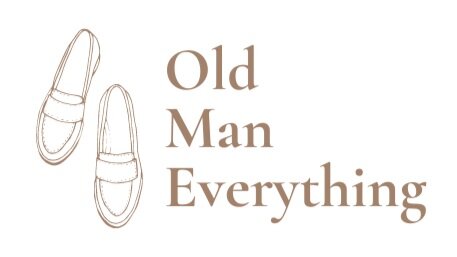Clothing Matters
Before you get dressed in the morning, do you think about your outfit?
If you said no, you are probably mistaken. At the very least you will dress for whether the day will be hot, cold or somewhere in between. Beyond the weather, you might consider where you are heading that day and what would be appropriate for that place. And even if you are staying at home all day because of a pandemic, you may think about how you want to feel in your clothes. Does it feel like a sweatpants day or a real pants day? On several different levels, explanations exist behind what people wear. For practical, social, and personal reasons, clothing matters.
The foremost purpose of clothes is to protect from the elements. I recently rediscovered this simple truth because I am trying to become a bowhunter. My friend Obaid, who has been hunting for 10+ years, sent me a list of items to buy. Camouflage clothing was near the top of the list. I sent him a link to a camo jacket I liked from Taylor & Stitch. Obaid responded that I didn’t need style—I needed gear: clothes that would keep me warm and dry for hours at a time while I sit in a tree stand during the winter. I needed clothing to shield my soft human skin from danger. Outdoorsmen wear boots, denim and flannel shirts for good reason. This same need arises for all of us in myriad activities - even surfers wear long wetsuits intentionally. The world is filled with threats ranging from thorns to hypothermia. The primary function of clothing is practical.
Given that most of us reading this post live in temperature-controlled homes, social norms are likely the biggest driver behind what we wear. Generally, most people dress how everyone around them dresses. Not only do they buy the same styles, but they buy from the same brands as well. Investment bankers in New York wear Hermes ties and Gucci loafers. Construction workers in Ohio wear Carhart sweatshirts and Wrangler denim. And both of these groups of men wear suits to weddings, though they are from quite different worlds, because that is what is expected. Even “rebellious teenagers” have a uniform of baggy pants and dark graphic tees. Whether or not we like it, clothes are a proxy for an individual’s place in society. In Zero to One, investor Peter Thiel writes that he passed “on any company whose founders dressed up for pitch meeting” because “real technologists wear T-shirts and jeans.” The reality cannot be escaped: clothes signal to others who we are, what we do, and with whom we associate.
Beyond signaling status, clothes help you express yourself and make you feel a certain way. I initially got into clothes through dressing up for academic events (primarily debate and Model UN) in high school. When I put on a suit as a 14-year-old, it gave me confidence and made me stand taller. As a freshman in college, I got further into clothes: I embraced “Ivy style” because it helped me feel like I was in the right place. I always wore a collared shirt to class, even though many of my classmates wore tees, jeans and sweats, because I wanted to communicate to my professors that I was a serious student who respected them. Today I wear a lot of “smart casual” outfits. I wear a sport coat with denim or a nice sweater with trousers. My goal is to feel comfortable yet look sharp. I want others to see that I care, but not to think that I’m fussy. How do you want to feel and what do you want to say to others?
In sum, clothing matters because it shields our bodies, signals our place in society, and reflects who we are as well as how we feel to those around us. Anyone who thinks about clothing even just a bit will consider these factors subconsciously. The more consciously you intend how you dress, the more likely you are to control how you feel and what you communicate. Let’s all try to be more intentional.
Further reading:
